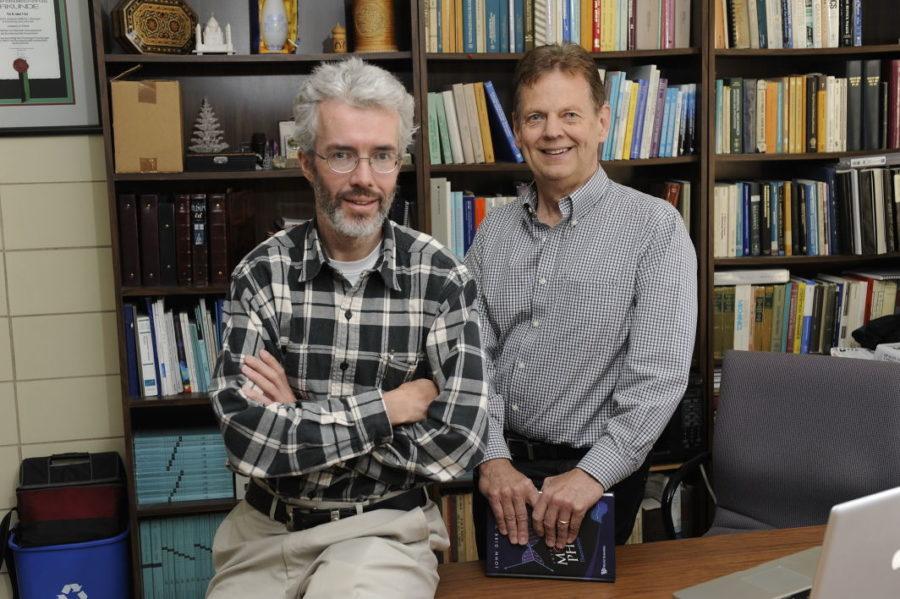Supercomputer features
Iowa State University’s Pieter Maris, left, and James Vary will get a head start on scaling up their computer codes for the Energy Department’s next-generation supercomputer.
October 8, 2014
So you think your MacBook Pro packs a serious punch? Cori, the new supercomputer being developed by the National Energy Research Scientific Computing Center, can probably dance like a butterfly and sting like a bee compared to your PC.
FEATURES
- Self-hosted architecture, not a co-processor, not an accelerator
- Next-generation Intel® Xeon Phi™ Knights Landing (KNL) product with improved single-thread performance targeted for highly parallel computing
- Intel® “Silvermont” architecture enhanced for high performance computing
- Over 9,300 single-socket nodes in the system with each node > 3TeraFLOPS/s theoretical peak performance
- Better performance per watt than previous generation Xeon Phi™ systems and 3X single-thread performance
- MPI + OpenMP programming model
- AVX512 Vector pipelines with a hardware vector length of 512 bits (eight double-precision elements)
- On-package, high-bandwidth memory, up to 16GB capacity with bandwidth projected to be 5X that of DDR4 DRAM memory
- 64-128 GB of DRAM memory per node
- Greater than 60 cores per node with support for four hardware threads each; more cores than current generation Intel Xeon Phi™
- Cray Aries high speed “dragonfly” topology interconnect, cabinets, and cooling (same as in Edison)
- Lustre filesystem with > 430 GB/sec I/O bandwidth and 28 PB of disk capacity
- Intel, Cray, and GNU programming environments
Installation will be mid-2016 in the new CRT building in Berkeley.







